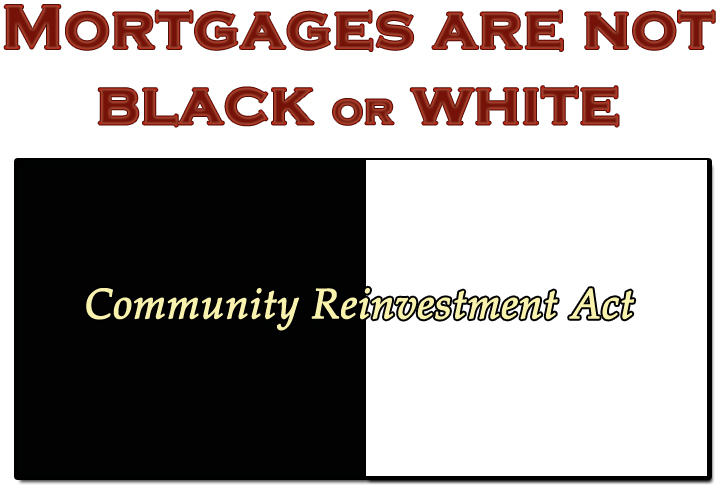 It’s day two at the CAAMP Mortgage Forum and the day stated with music and a presentation on the creative process with recording artist David Usher. Hell of a way to start the day. I challenged the creative part of my brain by asking him to come up with lyrics that incorporate the words bps, OSFI, B20 and trailer fees. We might have to wait a while to hear that hit.
It’s day two at the CAAMP Mortgage Forum and the day stated with music and a presentation on the creative process with recording artist David Usher. Hell of a way to start the day. I challenged the creative part of my brain by asking him to come up with lyrics that incorporate the words bps, OSFI, B20 and trailer fees. We might have to wait a while to hear that hit.
I have to get back to the conference.
Until next time,
Cheers.
Read More Add a Comment Minus the tents, sleeping on the ground, rummaging for food and not bathing for a few days. There will be no roughing it at the CAAMP Mortgage Forum 2012. Every aspect of the conference is high end. From its location, speaker line-up and entertainment. The mortgage industry is entitled to an event which is celebratory in nature. Our industry has been in the cross-hairs for some time now, and this conference gives us an opportunity to say to all those who viewed our industry in a negative light, We’re still here…We’re still standing…We’re still relevant.
Minus the tents, sleeping on the ground, rummaging for food and not bathing for a few days. There will be no roughing it at the CAAMP Mortgage Forum 2012. Every aspect of the conference is high end. From its location, speaker line-up and entertainment. The mortgage industry is entitled to an event which is celebratory in nature. Our industry has been in the cross-hairs for some time now, and this conference gives us an opportunity to say to all those who viewed our industry in a negative light, We’re still here…We’re still standing…We’re still relevant.
As the Conference Chair, my wish is that all attendees enjoy the experience. There’s nothing wrong with having fun while you learn and network. Personally, what I’m looking forward to is talking to people. Old school, one-on-one conversations. Less texts, and more handshakes and smiles. Here’s to a great Mortgage Forum 2012, and I look forward to seeing you in Vancouver.
Until next time,
Cheers.
Read More Add a Comment In a little over a week I get to play the part of an expected father, the birth of a massive baby; Mortgage Forum 2012 officially opens on Sunday, November 25th, in the beautiful city of Vancouver. This is year two of the conference transformation or rebirth if you will. The teeth gnashing and nail biting was far more intense last year. I guess that’s because you’re never 100 per cent sure if and how the change will be embraced. I received many compliments during the Forum last year but I had this nagging doubt that people were just being polite. Therefore, attendees true feelings and thoughts would be captured by way of survey results. I waited with baited breath to get the results, and what a satisfying exhale it was when the results came in. The results were off the charts, and it was there in black and white, the changes were embraced. Many the of the survey respondents commented, “How are you going to top it next year?” All modesty aside, we’re going to do it. (more…)
In a little over a week I get to play the part of an expected father, the birth of a massive baby; Mortgage Forum 2012 officially opens on Sunday, November 25th, in the beautiful city of Vancouver. This is year two of the conference transformation or rebirth if you will. The teeth gnashing and nail biting was far more intense last year. I guess that’s because you’re never 100 per cent sure if and how the change will be embraced. I received many compliments during the Forum last year but I had this nagging doubt that people were just being polite. Therefore, attendees true feelings and thoughts would be captured by way of survey results. I waited with baited breath to get the results, and what a satisfying exhale it was when the results came in. The results were off the charts, and it was there in black and white, the changes were embraced. Many the of the survey respondents commented, “How are you going to top it next year?” All modesty aside, we’re going to do it. (more…)
“The question on the mortgage application asked “Are you Caucasian, African American, Latino, Asian, Native American or Other?” My initial reaction was shock, but then it dawned on me why I was being asked this question… Now there’s a recipe for responsible lending.”
My blog last Tuesday, “Honouring a Canadian Hero”, referenced the failed Presidency of Jimmy Carter. As stated, I do not believe history will be kind to Jimmy Carter and his legacy and defining moment will forever be the American Embassy hostage crisis in Iran. The final act of humiliation for Carter was when the Iranians only agreed to release the hostages after Ronald Regan’s inauguration. Regan negotiated a deal for oil with the Iranians, and he w as responsible for the hostages being released. I think it would be a challenge, even for President Carter’s most ardent supporters, to make a case that he was an effective Commander and Chief. What about as a legislator? Once piece of legislation the President Carter signed into law was what I believe was the genesis of the mortgage meltdown.
as responsible for the hostages being released. I think it would be a challenge, even for President Carter’s most ardent supporters, to make a case that he was an effective Commander and Chief. What about as a legislator? Once piece of legislation the President Carter signed into law was what I believe was the genesis of the mortgage meltdown.
In 1977, President Carter signed into law the Community Reinvestment Act. The law was designed to force banks to meet the needs of borrowers in all communities, with a focus on moderate and low-income neighbourhoods. The belief at that time was that the banks were discriminating against moderate and low-income neighbourhoods. To remedy this, Crater and Congress passed a law requiring banks to ensure that moderate and low-income borrowers (in those days was code for “non-qualified”) would be able to get a mortgage. The new law armed regulators with the authority to block bank mergers and expansion if they were deemed to be non-compliant. The Community Reinvestment Act stated banks were not required to make high risk loans, however, the penalty for not doing so could impede a bank’s ability to grow and create value for its shareholders; dilemma, dilemma.
The truth is that after many years of the law being enacted, regulators exercised caution when disciplining banks for non-compliance of the Community Reinvestment Act. But that all changed when William Jefferson Clinton became President. An amendment to the Act was made requiring Fannie Mae and Freddie Mac, two government agencies, to securitize mortgages for those borrowers who were moderate or low-income borrowers. Also, the regulators were instructed to enforce the law. No more ambivalence, no more looking the other the other way. Upon audit if a bank was found to be non-compliant with the Community Reinvestment Act, the banks’ ability to grow would be impeded by the government, period. Oh, but it got even better. Social and community groups were encouraged to file complaints if they believed a bank was not in compliance with the Community Reinvestment Act. It got to the point where some banks were paying off – pardon me – making significant dollar contributions to community groups to not file a complaint. These community groups gladly accepted the “donations” from the banks with the understanding that banks still had to fund “X” dollars in mortgages in moderate and low-income communities. Under Clinton, the banks had to find ways to do non-qualified loans but now they could securitize these loans and get if off their balance sheet. Now there’s a recipe for responsible lending.
I got a firsthand look at the folly of this Act. For a short period of time I had a mortgage in the U.S. I will never forget one of the questions on the mortgage application. The question was, “Are you Caucasian, African American, Latino, Asian, Native American or Other?” My initial reaction was shock, but then it dawned on me why I was being asked this question. The criteria to qualify would depend on how I answered that question. The Department of Housing and Urban Development (HUD) requires lenders to collect this data to ensure equal lending practices, and the Community Reinvestment Act ensures that those who would not normally qualify for a mortgage, do. Can you imagine having to ask that question here in Canada? Now, is it any wonder that we weathered the meltdown so much better than our neighbours to the South? Lending in Canada is not based on racial quota, it’s based on qualifying. I’ve said it before and I will say it again, the mortgage meltdown was the result of irresponsible behaviour that boarded on criminal by some. However, if fingers are going to be pointed at those responsible for the mortgage meltdown then historical perspective is required. The Community Reinvestment Act provided the kindling, newspaper, butane and matches; Wall Street set it ablaze.
Tonight Americans decide who their next President will be. I’m struck by the parallels between the Carter and Obama era. Both had no answer for a failing economy. During both administrations the American psyche was and currently is extremely fragile. Under both administrations the future brought little hope. Both administrations had to deal with an embassy crisis. Both blamed their predecessors for the state the economy at re-election. It didn’t work for Carter and tonight we will learn if it worked for Obama.
Until next time,
Cheers.
Read More Add a CommentSo… we’ll have to depend on the global economy to make up for the negative impact that a slowing Canadian real estate market will have on our economy?
Where are they hiding? They weren’t bashful about sharing their opinion when they were telling the Government to cool down the real estate sector. The real estate industry was the apple of every headline seeking expert’s eye. Government must act now…our economy is at risk…for the love of all things holy please save mankind from the evils of real estate. Funny watching the outcome – the government acted, the market dropped by 15 per cent and now those who demanded government action are now all of sudden too busy to comment.
 There was a good article written by Michael Babad in the Globe yesterday titled “Careful What You Wish For”. The article refers to a new report from Avery Shenfeld, Chief Economist for CIBC. I won’t regurgitate the facts but the gist of the article is that slowing down the real estate sector could end up having a far reaching impact on the Canadian economy. Pleads from the minority, like CAAMP, cautioning the government not to over reach for fear of exactly what CIBC is now saying maybe should have been heeded. Here’s a quote I found interesting from CIBC’s report, “In 2013 an economic acceleration looks unlikely absent a new source of growth to fill in housing’s gap. That makes it even more urgent that the global economy is healthier come 2014, when the full bite of a housing slump on domestic activity will be felt. Until that’s a sure bet, policy makers will be cautious about pouring more cold water on the housing sector through further changes in mortgage insurance or higher interest rates.” So we’ll have to depend on the global economy to make up for the negative impact that a slowing Canadian real estate market will have on our economy? But we should all take solace in the fact that Shenfeld doesn’t believe the government will do anything to slow down the market further. I wonder what the magic number is? A 15 per cent drop is acceptable but 20 per cent or greater is unacceptable?
There was a good article written by Michael Babad in the Globe yesterday titled “Careful What You Wish For”. The article refers to a new report from Avery Shenfeld, Chief Economist for CIBC. I won’t regurgitate the facts but the gist of the article is that slowing down the real estate sector could end up having a far reaching impact on the Canadian economy. Pleads from the minority, like CAAMP, cautioning the government not to over reach for fear of exactly what CIBC is now saying maybe should have been heeded. Here’s a quote I found interesting from CIBC’s report, “In 2013 an economic acceleration looks unlikely absent a new source of growth to fill in housing’s gap. That makes it even more urgent that the global economy is healthier come 2014, when the full bite of a housing slump on domestic activity will be felt. Until that’s a sure bet, policy makers will be cautious about pouring more cold water on the housing sector through further changes in mortgage insurance or higher interest rates.” So we’ll have to depend on the global economy to make up for the negative impact that a slowing Canadian real estate market will have on our economy? But we should all take solace in the fact that Shenfeld doesn’t believe the government will do anything to slow down the market further. I wonder what the magic number is? A 15 per cent drop is acceptable but 20 per cent or greater is unacceptable?
Seeing how we’re going to have to depend on the global economy to make up for the slowing real estate market we had all better keep on eye what’s happening in other parts of the world. Not sure if we should feel warm and fuzzy depending on Greece, Italy, Spain, China and the U.S. The Fed’s were in a tough spot and there’s no way they could predict, with one hundred per cent accuracy, the exact level of the slowdown. But in less than three months of the most recent changes to the mortgage rules there are signs they may have over reached; if that proves true there could be repercussions for the Fed’s, like contributing to Justin Trudeau mania.
Related Posts:
BOC Leaves Target Rate “As Is”
Canada Housing: Correction vs. Bust – Let the Finger Pointing begin
Bank of Canada still locked with the US Fed?
Real Estate & Mortgage Industry: The Margin Battle
Until next time,
Cheers.
Read More Add a Comment